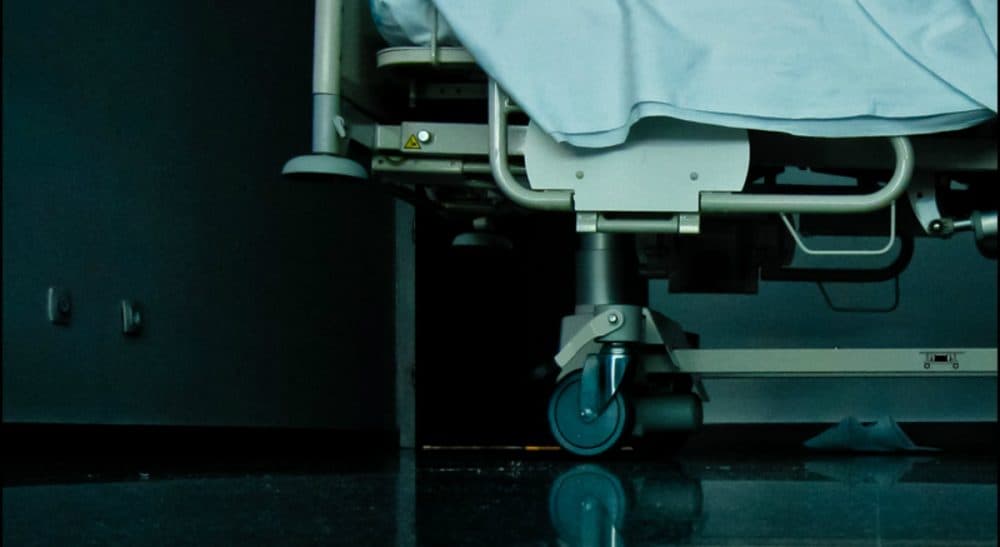Advertisement
When Both Doctors Care, But Neither Can Help

There are plenty of disagreements over patient care in medicine — even though it’s a field full of clear tests and measurements. There are even more tussles over patient care in psychiatry, where talking is sometimes the only measurement tool available. In this week’s Cognoscenti commentary psychiatrist Elissa Ely recalls one disagreement. It was years ago, and came with consequences.
That’s it, he says. It’s over.
He’s on a stretcher, heading into an elevator, talking about our long relationship. I’ve already called the emergency room to tell them he’s on his way. He’s set a death date — five days from now. He has no factual plan, no gun, no overdosable medication, no dexterity for the knots on the noose. But he has given away most of his belongings and come to our appointment to notify me. One cannot in good Hippocratic conscience hear that kind of thing without acting.
After the ambulance leaves, I pass the facts by phone to a nurse. She will pass them on to the team evaluating him: elderly man, few supports, untreated depression — capital letter risk factors for suicide.
I expect the hospital will admit him, though inpatient beds are almost impossible to find these days. Looking for one is like interviewing in front of an elite condo board. You face nothing but the rustle of your application at a table full of frowning brows.
He doesn’t want to be in the hospital, and it’s not hard to understand his logic: can any hospital really save him? The death date may pass, the meds may change, but his losses can never be restored — and, with my betrayal, there’s one more. The end of our relationship is titanic, but it assures his safety. Therefore it is the right thing to do.
The next morning, there’s a message on the machine from the emergency room social worker. It’s tired and polite. After a long assessment, the team did not find the patient committable. He was not psychotic, he had no factual plan for suicide. He’s a logical and convincing speaker, and it was easy to imagine him making a logical and convincing case.
Outpatient, inpatient ... We care for the same patients and work in the same field, except that we don’t share the same goals, and therefore, we can’t reliably count on one another.
The team sent him home by cab. Before leaving, he signed papers saying he would return to the emergency room if he felt worse. He also agreed to follow up with his outpatient providers as soon as possible — the no-longer-existent us.
Outpatient, inpatient. We’ve all had the same professional training. We meet at the same conferences, with lunch reunions between lectures. We care for the same patients and work in the same field, except that we don’t share the same goals, and therefore, we can’t reliably count on one another.
When I was an inpatient psychiatrist, the goal was to discharge patients, even though we sometimes felt they weren’t fully prepared to leave (or the community fully prepared to receive them). Now I’m an outpatient psychiatrist, trying to convince former colleagues that an unsteady patient needs to be admitted. I want my patient inside, safe. It’s like peering through the wrong end of the telescope — only both sides are doing it and each sees clearly, so which is the wrong end? You could say there’s no single view, and no absolute truth in psychiatry. There are only absolute consequences.
From her tone, I know the social worker knows what I’m feeling. I bet some long-term patient she once despaired about was released from a different emergency room by a different frowning condo board. Maybe she and her patient lost their relationship in the process. Maybe she has also known what it is to be ambidextrous, shutting and opening the same door with different hands. Maybe we’ll have lunch at some conference next week.
But that doesn’t change the team’s decision. They evaluated my patient with fresh, liability-aware eyes, disagreed with my assessment and discharged rather than admitted him. I know that she knows it’s unlikely he will follow up with his outpatient provider as soon as possible.
That’s it, it’s over.
